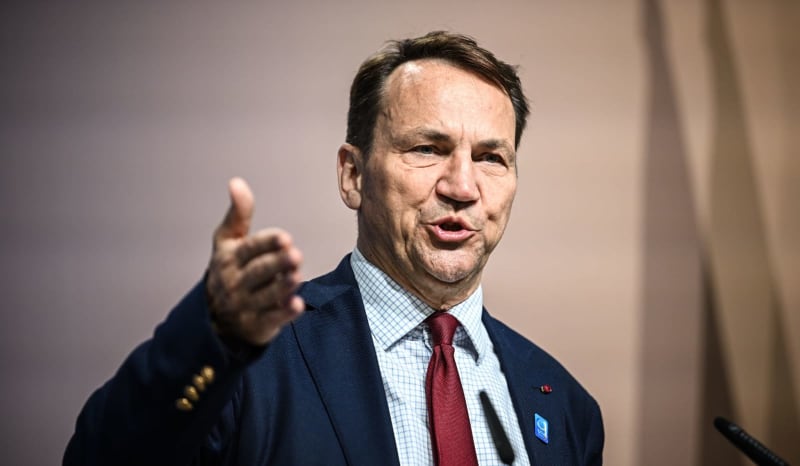Polish Foreign Minister Radosław Sikorski has responded to recent grievances from Ukraine regarding Poland’s failure to deliver promised MiG-29 fighter jets, emphasizing that Poland has its own defense priorities amidst the ongoing threat posed by Russia. In an interview with Polsat News, Sikorski clarified that as a frontline state, Poland has to focus on its own military preparedness to deter Russian aggression, particularly under President Vladimir Putin’s regime. This position comes amid mounting pressure and expectations from Ukraine, especially following Ukrainian President Volodymyr Zelensky’s criticisms of Poland’s commitment to military support.
Zelensky has expressed discontent, accusing Poland of finding excuses to withhold additional fighter jets from Ukraine, despite previous assurances. Sikorski’s remarks highlight the delicate balancing act Poland faces: providing crucial support to Ukraine while ensuring its national security needs are adequately met. The situation underscores the complexities of military alliances, especially in a region heavily impacted by Russia’s aggressive military actions towards its neighbors, which raises the stakes for Poland as it navigates its defense strategy.
In addition to the jet dispute, Sikorski mentioned a proposal initiated by the Polish government that aims to provide Ukraine with a defense loan. This initiative would facilitate Ukraine’s acquisition of military equipment from Polish defense contractors, allowing it to repay the loan over a longer period during its reconstruction phase. However, initial media reports suggest that this proposal might not receive favorable consideration from Ukrainian officials, raising concerns about the effectiveness and motivation behind such financial support amidst pressing military needs.
Furthermore, the criticism from Zelensky extended to Poland’s reluctance to shoot down Russian missiles that stray into Ukrainian airspace. Warsaw has maintained that any military action involving NATO’s collective defense principles would require the consensus of all member states. This stance has been a point of contention, as Ukraine seeks to bolster its air defenses against ongoing missile threats while navigating the constraints of alliance politics within NATO.
Poland has established itself as one of Ukraine’s staunchest allies since the onset of full-scale Russian invasion in February 2022. The country has offered significant political and military backing to Ukraine, along with humanitarian support, such as sheltering hundreds of thousands of Ukrainian refugees fleeing the conflict. This deep-rooted support is indicative of the historical ties and shared security interests that bind the two nations, particularly in light of the common threat posed by Russia in Eastern Europe.
In conclusion, the recent disputes between Poland and Ukraine illustrate the challenges faced by Poland as it balances its defense commitments and security needs against external pressures from Ukraine. Sikorski’s assertions about Poland’s railway and defense priorities reflect the broader geopolitical context, with the emphasis on national security becoming increasingly relevant as tensions with Moscow remain high. As both nations navigate this complex landscape, ongoing dialogue and collaboration within the framework of EU and NATO alliances will be crucial for ensuring stability and support for Ukraine’s defense efforts.

